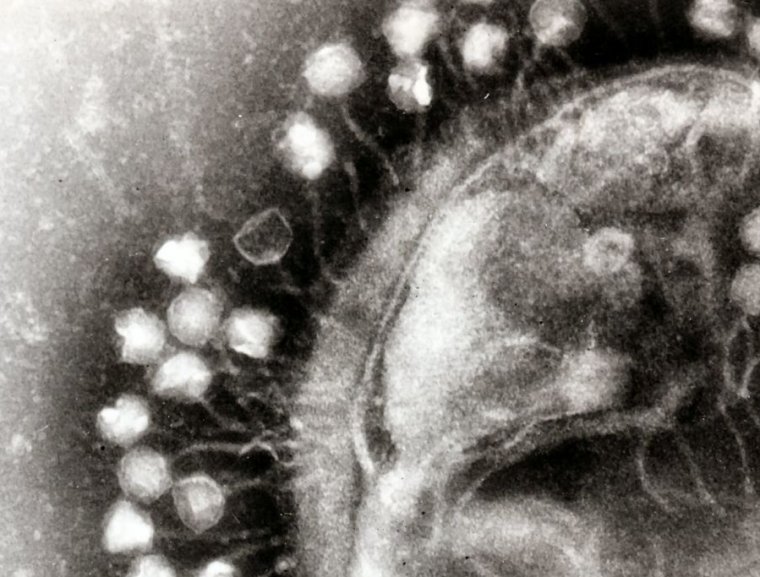Virus fished from pond cures man’s deadly antibiotic-resistant infection
Ars Technica 2018-03-20

Enlarge / Transmission electron micrograph of multiple bacteriophages attached to a bacterial cell wall. (credit: Dr Graham Beards)
In 2012, a 76-year-old Connecticut doctor had surgery to repair a life-threatening bulge in his aortic arch—the hulking bend that hooks the massive artery around the heart, routing oxygenated blood both upward and downward. Surgeons successfully used a synthetic graft to shore up the vital conduit. But soon after, a tenacious film of drug-resistant Pseudomonas aeruginosa bacteria formed on the graft.
The doctor spent the next four years battling the infection, slipping in and out of the hospital. His surgeons and doctors at Yale deemed him too high risk for another operation and put him on mega-doses of antibiotics, prescribed indefinitely. The drugs couldn’t clear the infection, they merely knocked it back enough to keep it from killing him. But the chronic inflammation that ensued took its own toll. His team of doctors started to worry his immune system was chipping away at his aorta. With a bleak outlook, the man agreed in 2016 to an experimental treatment: a virus that researchers had fished out of a nearby pond.
The viral gamble paid off. The infection cleared and he went off antibiotics, according to a case study published recently by the Yale researchers and doctors in the journal of Evolution, Medicine, and Public Health.